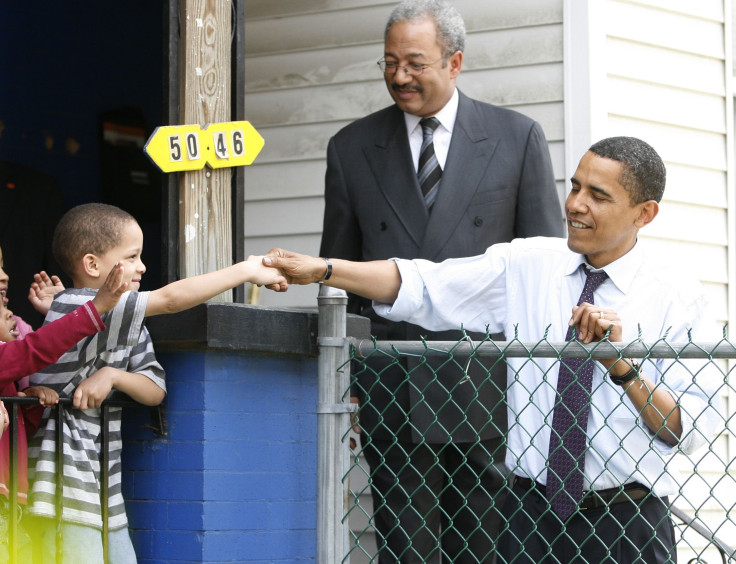Who Is Chaka Fattah? Former Pennsylvania Congressman’s Corruption Case Explained Ahead Of Sentencing

Philadelphia Democrat Chaka Fattah may spend a 17 to 21 years in prison after federal prosecutors urged U.S. District Judge Harvey Bartle III to sentence him for a longer term than most regional politicians in federal corruption cases.
Fattah, 60, served as the United States Representative for Pennsylvania’s 2nd congressional district from 1995 to 2016 and was also on the powerful House Appropriations Committee. His political career — spanning almost 30 years — ended after he was convicted on several charges of racketeering and corruption in June, resigning from office two days later.
“For over 20 years, Fattah held himself out ... as a champion of education and clean government,” Justice Department lawyer Eric L. Gibson wrote in a filing late Monday, seeking a sentence within the guideline range, the Associated Press reported. Instead, “Fattah sought to strengthen himself politically, enrich himself and his co-conspirators, steal from non-profits and the federal taxpayers, and defraud his campaigns, their creditors and a credit union.”
What Did Fattah Do?
According to the Justice Department, Fattah borrowed $1 million from a wealthy supporter during his failed 2007 campaign to be Philadelphia’s mayor, following which he used an education non-profit founded by him to repay much of the money, with charitable donations and grant funds. The former congressman reportedly covered up the transactions through sham contracts, tax returns and campaign finance documents.
Prosecutors say Fattah also used campaign money to repay $23,000 of his son’s student loan debt between 2007 and 2011 and unsuccessfully lobbied President Barack Obama for an ambassadorship or U.S. Trade Commission appointment for former Philadelphia deputy mayor Herbert Vederman.
Vederman was found guilty of bribing Fattah with gifts — including cash payments of $18,000 to help with the purchase of a vacation home in the Poconos. However, Vederman’s lawyers maintain that those gifts were signs of their client's long friendship with the congressman and nothing more.
Prosecutors differ with Vederman’s lawyers and Gibson wrote in a separate filing: “Vederman shows that he still does not understand a point that the jury appears to have had no problem grasping. Whether Vederman and Fattah were friends or not, Vederman committed a crime when he gave Fattah things of value in exchange for official acts. Friendship does not mitigate bribery.”
What are Prosecutors Seeking?
The former congressman will be sentenced Monday. Prosecutors, along with the 17- to 21-year sentence, are also seeking more than $600,000 in restitution from Fattah and four other co-defendants.
Most Philadelphia-area politicians involved in federal corruption cases received sentences that were far lower than this but prosecutors maintain that the recommended sentence fell within the federal sentencing guidelines for the crimes Fattah was involved in.
“Fattah understood the power and trust given to elected officials and that corruption benefits the few at the expense of the many,” Gibson wrote. “He chose to violate the trust of his constituents and the taxpayers to line his pockets and advance his personal and professional goals at their expense.”
How Has Fattah Responded?
While defense lawyers have not filed their sentencing brief as of now and did not immediately return the AP’s calls for comment Tuesday, in the past Fattah has maintained that he is proud of his record on education and home foreclosures.
“This is an extraordinarily difficult day for me and my family,” Fattah had said after he was convicted in June. “While today's outcome isn’t what we had hoped, I respect our nation’s judicial system.”
© Copyright IBTimes 2024. All rights reserved.






















